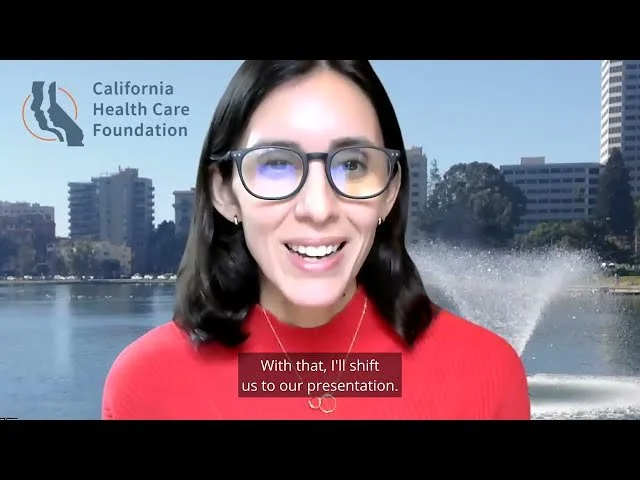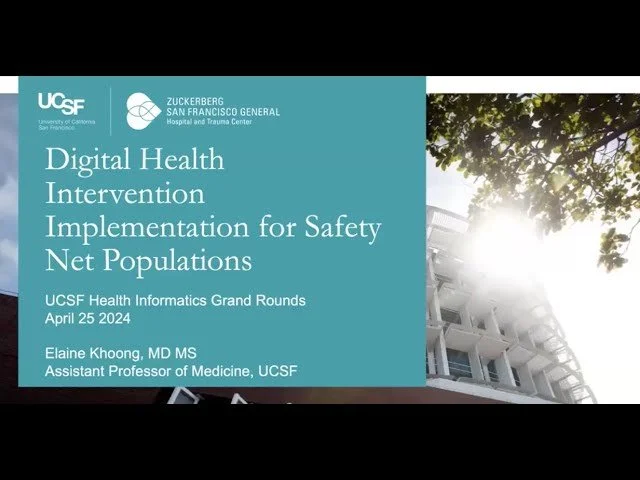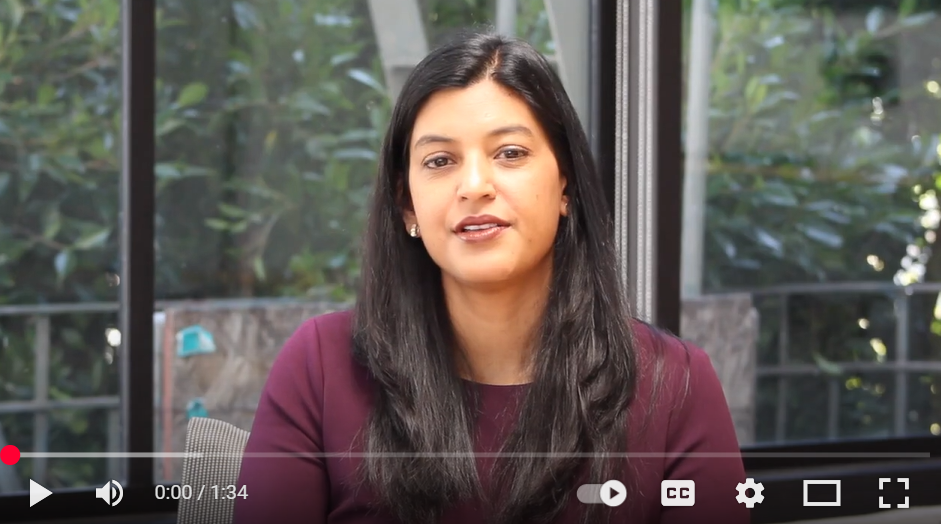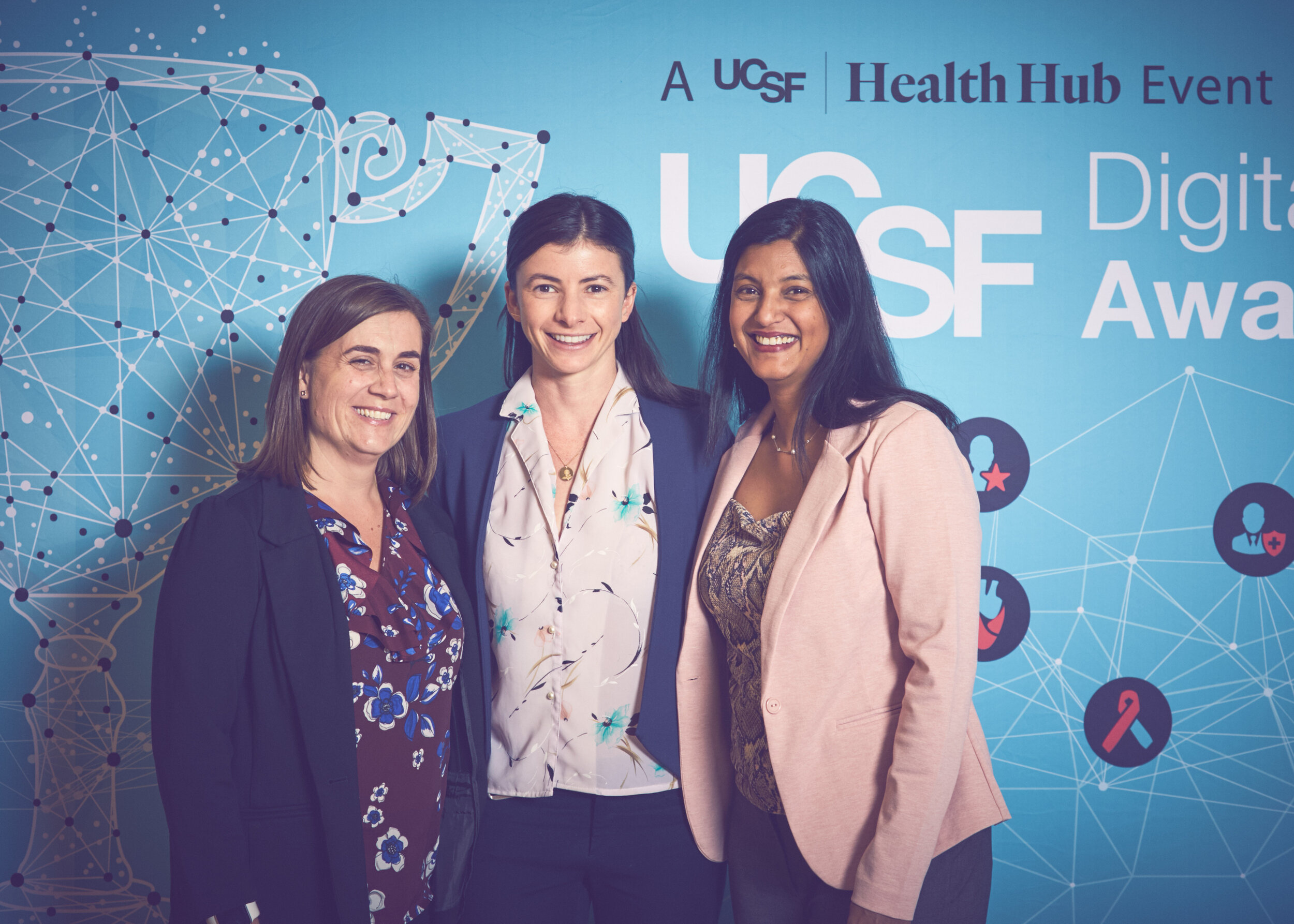Digital Health Equity
Image provided by UCSF.
Overview
For technology to truly revolutionize health, digital tools must work for diverse populations.
Our research demonstrates that there are disparities in current use of health information technologies by race and ethnicity as well as health literacy, suggesting that existing technologies and related polices are not equitable. This has sparked our efforts to make digital health innovations more inclusive, such as by partnering directly with digital health companies to improve the accessibility of their products as well as evaluating use and uptake of digital health tools in safety-net health care settings.
Current Projects
DIAL
The goal of the Digital Inclusion Access and Literacy (DIAL) project is to assess and validate digital inclusion screening questions. This study examines the support needed by older adults by observing them as they conduct telemedicine or patient portal tasks. The project aims to validate how well the screening questions predict the level of support participants require.
The goal of the Remote Monitoring for Equity in Advancing Control of Hypertension (REACH) study is to support patients with hypertension self-management using both home blood pressure monitors and digital messaging programs. REACH seeks to mobilize patients with hypertension through myChart training and at-home blood pressure monitoring with a text messaging assistance platform that encourages self-management of hypertension. REACH emphasizes equity and accessibility of technology programs for English or Spanish speaking patients with hypertension in a safety net healthcare system.
UCSF S.O.L.V.E. Health Tech
The purpose of this program is to make digital health products more equitable by partnering directly with digital health companies. Despite billions of dollars invested in the digital health industry annually, we have not yet seen a meaningful, sustained reduction in health care expenditures or equitable improvement of health outcomes. This is because very little of the robust private investment in digital health goes to companies led by members of historically excluded groups, and privately developed digital health products rarely focus on marginalized populations. In response, Dr. Sarkar and Dr. Courtney Lyles founded UCSF S.O.L.V.E. Health Tech, the nation’s first health equity incubation partner dedicated to bridging innovation in the private sector with the needs of patients often excluded from digital health design, development, and implementation.
Digital Health Equity Collaborative
Our collaborative aims to help close the digital divide in healthcare by bringing together patients, health leaders, researchers, and advocates, to ensure digital tools promote-not hinder-equity in care. Together, we aim to share best practices and prioritize research to build a more inclusive digital health future.
Selected Completed Digital Health Projects
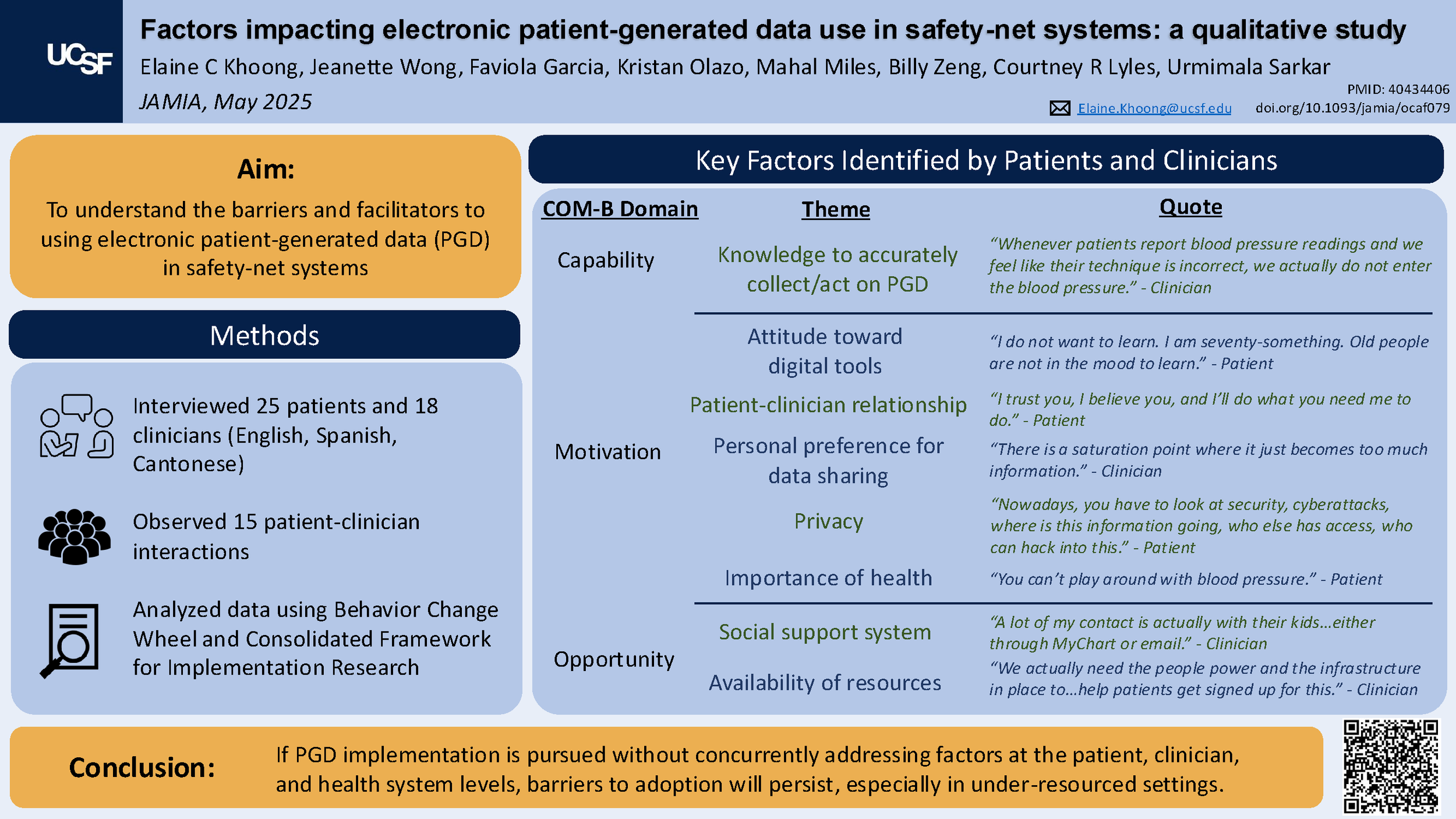


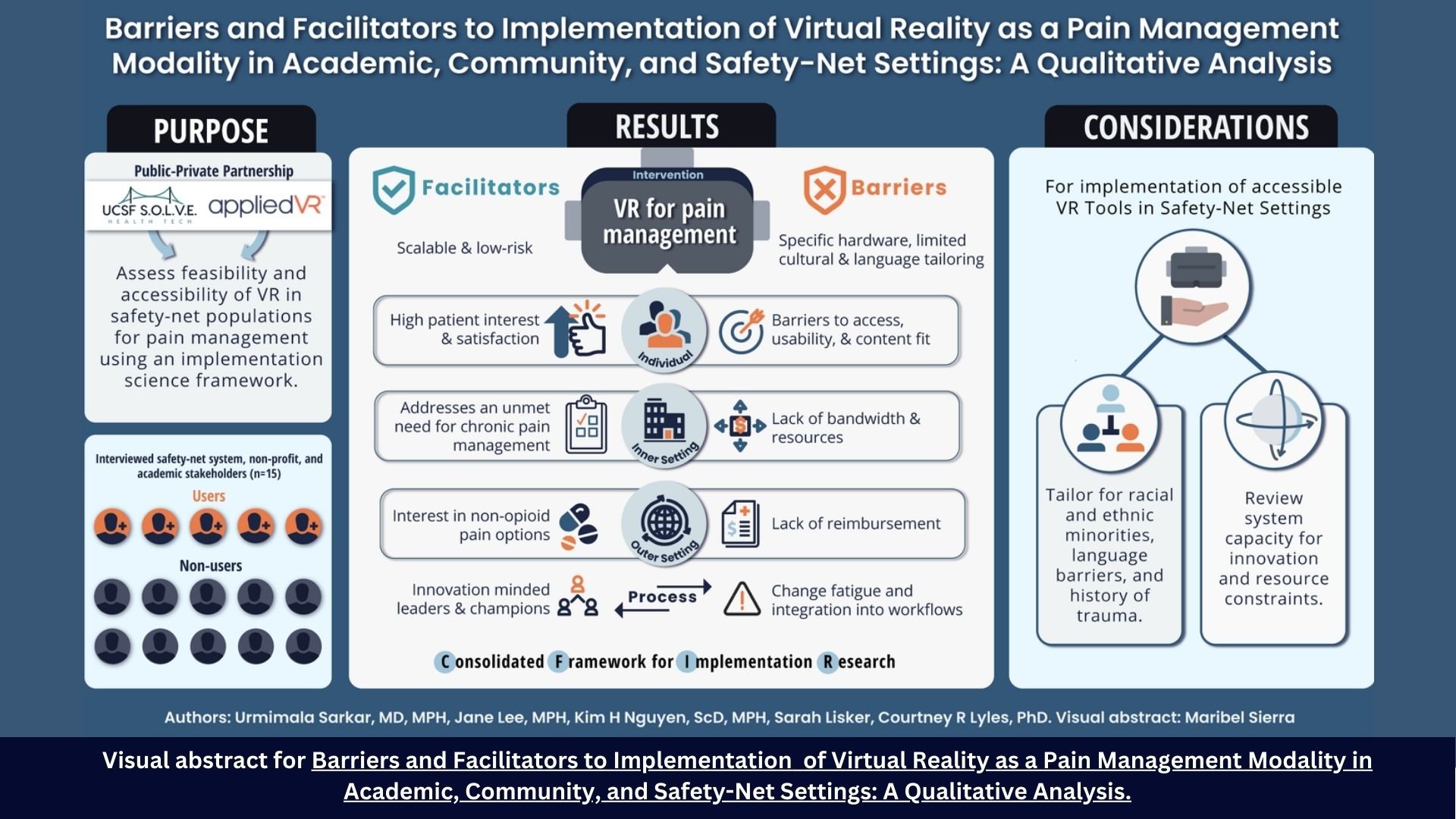
Digital Health Presentations
Dr. Khoong participated in a panel discussing Telehealth’s Evolution in California
This webinar explored telehealth’s growth in California, highlighting findings from the report Telehealth’s Evolution in California: Progress, Challenges, and Opportunities. This event covered telehealth equity, implementation, policy, financing, and research, offering insights from healthcare leaders. Designed for health system leaders, policymakers, and researchers, the event examined challenges, opportunities, and strategies to advance telehealth and promote health equity.
Dr. Khoong discusses Implementation of Digital Health Interventions For Safety Net Populations
Dr. Khoong discusses implementation of digital health interventions in safety net settings, including barriers to implementation, multilevel determinants to digital health equity, telemedicine adoption and implementation, and use of digital tools to bridge the gap for patients with language barriers.
Dr. Sarkar discusses UCSF S.O.L.V.E. Health Tech's Role in Addressing Digital Health Needs for Medicaid and Vulnerable Populations
Dr. Sarkar has spoken about this disconnect between health offerings and the real-world needs of patients at venues such as South by Southwest. She serves on the expert council of HealthTech 4 Medicaid and the advisory board of the UCSF Health Hub.
Dr. Sarkar presenting at the UCSF Digital Health Awards (photo credit: The Vanity Portrait Studio)
Dr. Lyles, Sarah Lisker, and Dr. Sarkar at the UCSF Digital Health Awards (photo credit: The Vanity Portrait Studio)


